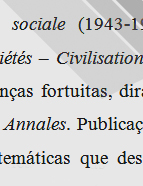

................................
However: Virgínia Rau, a pioneer in economic history studies at the Portuguese university, always gave more attention to commercial and financial aspects than to the other fields of economic history which were supposed to be cultivated. It is possible to note in her works (especially in her several document fragments composed after attaining the chair in 1951), that she did not disregard the Parisian collection "Ports-Routes-Trafics" by Armand Colin (edited by École Pratique des Hautes Études since 1951), which she used to embellish her writings: F. C. Spooner, Vicens Vives, Magalhães Godinho, Fernand Braudel, Frédéric Mauro, Jean Meuvret, Earl J. Hamilton, Gentil da Silva, Henri Lapeyre, Charles Verlinden, Raymond de Roover, J. Trocmé and M. Delafosse, all from the Annales or close to the modernising historiographical currents - in addition to the oldest cultivators of economic history, Jan Denucé (above all) and J. A. Goris, among many others - as confirmed by the auction catalogue of the books that had belonged to her (Oliveira, Catalogue). She was well-known in foreign historiographical circles, where she appeared when there were important meetings. It was certainly not by chance that she collaborated in the Mélanges en l'honneur de Fernand Braudel. Histoire économique du monde méditerranéen 1450-1650.
In the same vein, the work of Jorge Borges de Macedo was even more aligned with the problems, questions and interests of economic and social history as defended by the Annales, at least from the sixties onwards. This was visible in the special attention he paid to the problems of method in economic history arising from the works of Lucien Febvre, Fernand Braudel and Jean Meuvret, who are expressly cited in the bibliography of his doctoral dissertation (Macedo, Problemas, 1963, p. 360). These issues were mentioned and studied in his lessons, especially in the subject Theory of History. A. H. de Oliveira Marques was also attentive to what emerged from those French circles associated with the new way of thinking and constructing history. Hence, his familiarity with Renée Doehard, Jan Craeybeckx, Charles Verlinden and Michel Mollat, as well as other medieval authors who enriched the themes addressed in his stimulating Ensaios de História Medieval Portuguesa and who were also referred to in his classes - in the few years that Salazarism allowed him to teach in Portugal.
